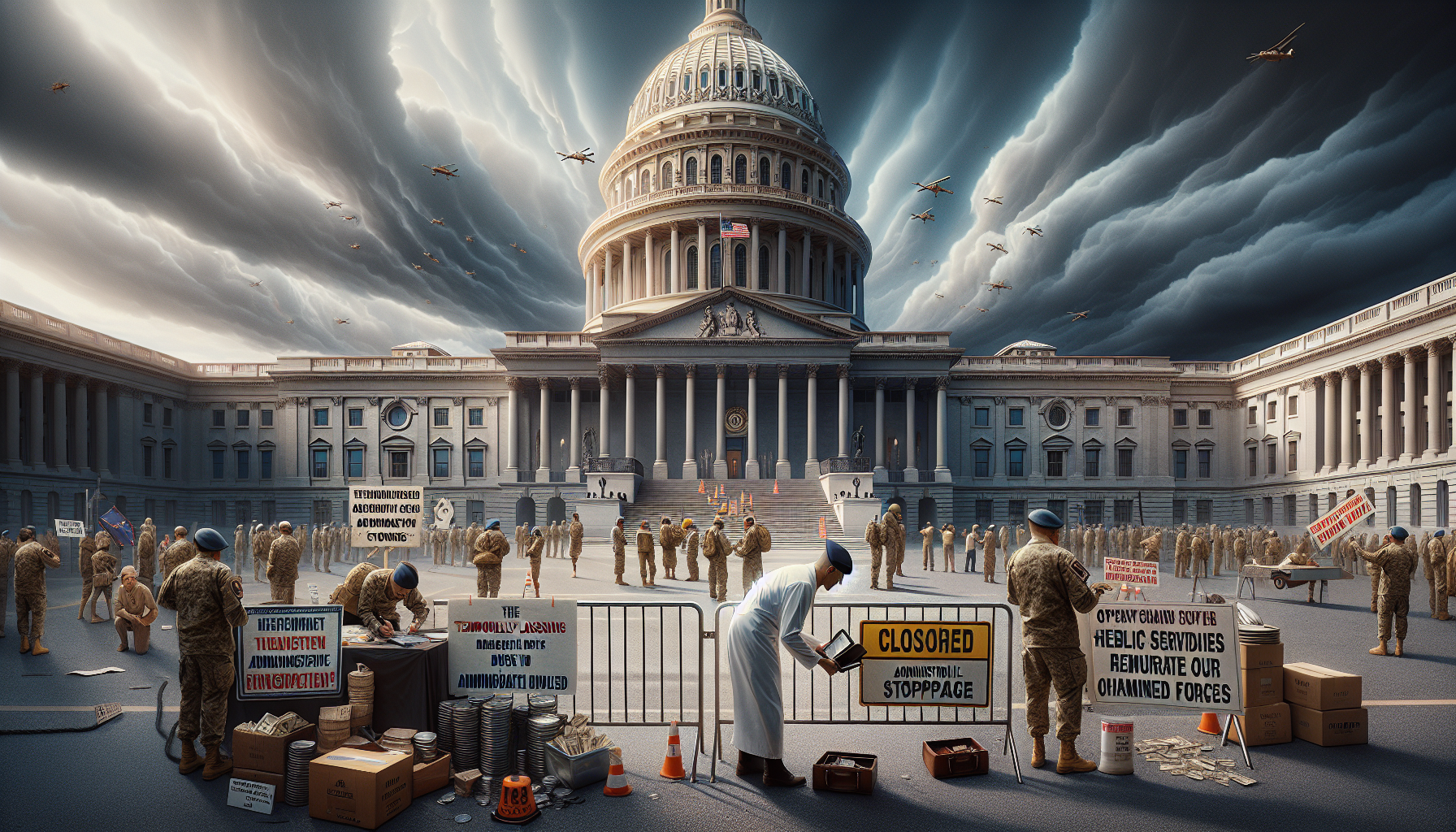The U.S. government shutdown, now in its second week, stems from a partisan standoff in Congress over extending enhanced Affordable Care Act premium tax credits set to expire at the end of 2025. Senate Democrats have blocked Republican funding bills five times, demanding a deal on the subsidies, while Republicans insist on reopening the government first. Impacts include furloughs for over 620,000 federal workers and delayed pay for 1 million active-duty troops.
The partial government shutdown began at 12:01 a.m. on October 1, 2025, after Congress failed to pass a funding bill by the deadline. The House had approved a clean continuing resolution on September 19 by a 217-212 vote, extending funding through November 21 without policy changes. However, Senate Democrats, led by Minority Leader Chuck Schumer, D-N.Y., refused to support it unless Republicans agree to permanently extend the enhanced Obamacare subsidies, created during the COVID-19 pandemic and expanded in the 2022 Inflation Reduction Act, which removed income caps and aided 24 million users of ACA marketplaces.
Republicans, including Majority Leader John Thune, R-S.D., argue the subsidies are inflationary and require reforms, calling the program 'broken.' Thune described GOP appetite for extension as 'a mixed bag' but emphasized negotiations cannot start until the government reopens. Only three Democrats—Sens. John Fetterman, D-Pa., Catherine Cortez Masto, D-Nev., and independent Angus King, I-Maine—have supported the GOP bill, alongside Sen. Rand Paul, R-Ky., who opposes it. The measure has failed four times in the Senate, with a fifth vote expected on October 6.
Democrats counter that without action, premiums will skyrocket for Americans relying on the credits. Schumer stressed the need for President Donald Trump's involvement, noting House Speaker Mike Johnson, R-La., and many Republicans oppose extensions. Trump told reporters, 'We're talking to the Democrats' and expressed willingness for a 'deal made for great healthcare.' Schumer responded that if Trump is ready to work with Democrats, 'we’ll be at the table.'
The White House, via press secretary Karoline Leavitt, warned of 'a lot of pain' inflicted on the public, including unpaid troops and risks to food assistance like WIC for 7 million mothers and children. Over 620,000 federal workers are furloughed, with first full paychecks missed on October 24 and military pay lapsing October 15; back pay will follow resolution. The shutdown costs $400 million daily, per the Congressional Budget Office. Republicans accuse Democrats of seeking healthcare for undocumented immigrants via subsidy extensions, a claim Schumer called 'absolutely false.' Sen. John Kennedy, R-La., alleged Democrats demand foreign aid for unrelated projects like LGBT initiatives, but their counter-proposal focuses on subsidies, $200 million in lawmaker security, and other domestic items without repealing broader rescissions.
National parks remain open but with limited services, USPS operates normally, and essential functions like air traffic control continue unpaid. An NPR/PBS News/Marist poll showed 38% blame Republicans more than Democrats' 27%, with 31% faulting both. No resolution is in sight as rank-and-file talks continue.
